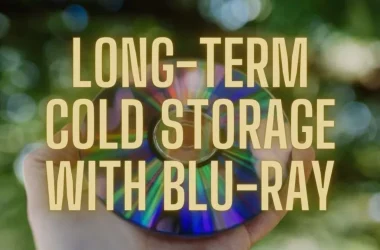Lithium batteries are highly flammable and hazardous. Old batteries degrade over time, and it’s not safe to keep them in your home for extended periods.
Keeping those batteries (at home) is dangerous, and it means that more resources need to be mined for new batteries. The raw materials and resources to make lithium batteries are scarce at this point.
httpv://youtu.be/1Xwxe0wU4b8?start=1027
In this article, we will discuss how to dispose of lithium batteries and recycle them safely.
What is a Lithium Battery?
A Li-ion or lithium-ion is a rechargeable (secondary cell) battery. Lithium-ion batteries are used mostly in consumer electronics and electric vehicles. There’s also the growing popularity of lithium-ion batteries in aerospace applications.
Did you know?
The Li-ion battery developers Akira Yoshino, John Goodenough, and Stanley Whittingham received the Nobel prize in 2019. The three scientists won the Nobel prize in chemistry for the development of none other than, Li-Ion batteries.
Lithium Battery Vs. Lithium-ion Battery
For a more comprehensive comparison, we recommend this article from Sciencing.com on Lithium vs. Lithium-Ion Batteries
Are Lithium-ion Batteries a Hazardous Waste?
Yes, Lithium-ion batteries are hazardous if we don’t dispose of them appropriately.
Overall, Lithium batteries are safe to use. However, when damaged, they present both electrical and chemical hazards.
The chemical and electrical hazards posed by Lithium batteries include:
- Chemical burn
- Fire
- Electric shock
The hazards of Lithium batteries increase during transportation.
How to Dispose of Lithium-ion Batteries?
The disposal of Lithium-ion batteries can be frustrating if you’re doing it for the first time. There are several ways that you can dispose of Lithium-ion batteries.
Here we will discuss three simple ways to dispose of Lithium-ion batteries:
Send Lithium-ion Battery Back to The Seller
The easiest way to dispose of Lithium-ion batteries is to send it back to the seller. Most stores that sell electronics like batteries, laptops, and smartphones take back the batteries. You can just ask the seller if they take it back, keep it at home until you have time to take it back, or send it.
Note: If you’re going to send the Lithium-Ion battery through the mail, make sure that it’s packaged properly.Dispose of Lithium-ion Battery at A Household E-waste Collection
The household e-waster refers to the electronic waster items that we use at home. The item may be from an institution or commercial source and not necessarily come from home. The e-waste is categorized as household e-waste if the items are similar to the ones used at home.
The e-waste items include used batteries, laptops, computers, headphones, and more.
Dispose of Lithium-ion Battery at A Battery-recycling Point
You should never put Lithium-ion batteries in your regular recycling bins. The rechargeable Li-ion batteries are highly inflammable and hazardous. Dropping off your used batteries at a battery-recycling point near you is an excellent way to dispose of used batteries.
Are Lithium-ion Batteries Recyclable?
Yes, Lithium-ion batteries are recyclable but only in a controlled, permitted environment.
In a Lithium-ion battery, Lithium is (naturally) the main ingredient. However, the Li-ion batteries also contain other metals, including cobalt, nickel, and graphite. There are several types of Li-ion batteries, and each one is created and used differently.
The materials used in the Li-ion batteries can be recycled with the right procedure. The recycled materials in Li-ion batteries include metal compounds, iron, aluminum, graphite, copper, and plastic.
How and Where to Recycle Lithium-ion Batteries?
You cannot recycle Lithium batteries at home and never put those in your regular recycling bins. Lithium batteries are hazardous, and any leakage presents both electrical and chemical hazards.
There should be a battery-recycling place near you that takes Li-ion batteries and recycle them. Earth911 is a great place to find a battery-recycling point near your location.
You can also drop off your used Lithium-ion batteries at the following stores near you:
- Best Buy
- Walmart
- The home depot
- Staple recycling
- Lowe’s battery recycling
Safety Rules to Follow Before Recycling a Battery
You can keep Lithium-ion batteries at home until you decide to recycle them. Before recycling, you need to make sure that they’re stored in a safe and cool place.
A few safety rules to follow before recycling Lithium-ion batteries include:
Packaging
You should prepare your used battery before storing it. There are two ways to prepare your Lithium battery:
- Bag: put each battery in a separate clean bag before placing it in a container.
- Tape: tape the battery terminals with clean and clear packaging, non-conductive electric, or duct tape. Make sure that the battery label is visible.
Make sure that the battery storage container is made of plastic, not metal.
Storage Temperature
The storage temperature for batteries is quite important. You should store Lithium batteries in a cool, dry environment. In excessively high temperatures, unwanted incidents can happen with batteries and devices that contain a battery.
Damaged Batteries
If you see a damaged or swollen battery, immediately place it in a non-flammable material like sand or kitty litter and put it in a cool, dry place.
Important: NEVER throw away or send a damaged or swollen battery through the mail.You can call the manufacturer or retailer of the battery or contact call2Recycle (in the United States) for further instructions.
What to Do with the Batteries When Donating My Laptop?
Are you planning to donate your laptop to a charity that operates in a developing country?
The laptop battery can’t hold a decent charge, it’s a dead weight that will be flown thousands of miles. The extra weight means extra fuel is burned, excess CO2 burned, increased carbon footprint, and additional cost.
Also, let’s not forget about the hazards involved in transporting Lithium batteries. They can overheat and even ignite under certain conditions. Once ignited, it’s very difficult to control and extinguish the fire.
Fire hazard is one of the primary reasons why airlines don’t allow passengers to place power banks or battery packs in the check-in luggage. You can take a battery pack in your carry-on luggage that has a capacity of under 27,000 mAh and 100 Watt.
On the other hand, it can be much difficult for the recipient to dispose of the battery properly in a developing country. There is a better chance that you’re living in a place with better recycling options.
FAQ
Should a Lithium battery be discharged entirely before recycling it?
Yes, a Lithium battery should be discharged fully before recycling to avoid any unwanted surprise. The battery recycling process begins with discharging the batteries completely.
Should I include my almost dead battery when donating my device?
No, an almost dead battery is not useful to the new user. You don’t know where the charity will ship the device eventually and how the charity or the new user will dispose of the battery. It will be a dead weight included with the device.
Is there a scarcity of raw materials in the battery industry?
Yes, with the rapid demand for Lithium batteries, manufacturers are often struggling with a shortage of raw materials. Recycling batteries can help provide raw materials, including cobalt, graphite, nickel, etc.
What are the consequences of disposing of the lithium batteries improperly?
Improperly disposed of lithium batteries are very unstable. They can cause fires that are very difficult to handle, and the resulting toxic chemicals released into the air affect it negatively.
You may also contribute to global warming by improperly disposing of lithium batteries.





